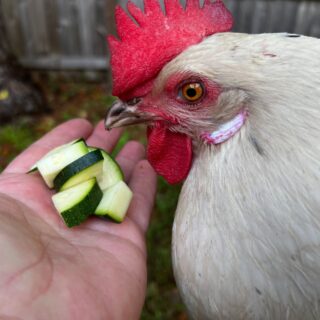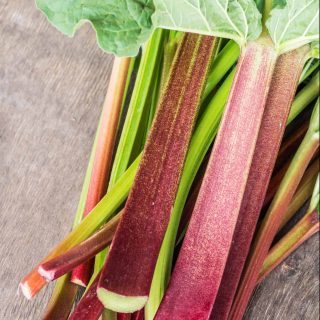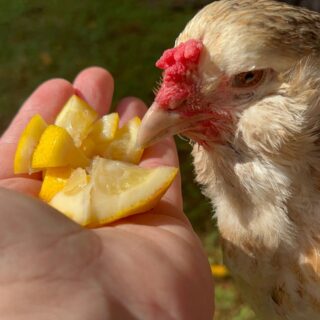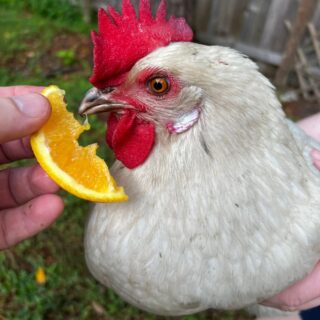Raisins are pretty polarizing. Some people love them because they are a tasty and healthy alternative to candy while others have developed serious trust issues when mistaking an oatmeal raisin cookie for a chocolate chip cookie. It turns out, asking can chickens eat raisins is just as divided.
So, do you think raisins are toxic for chickens or should you let your feathered friends snack the time away with you? Let's find out together, shall we?
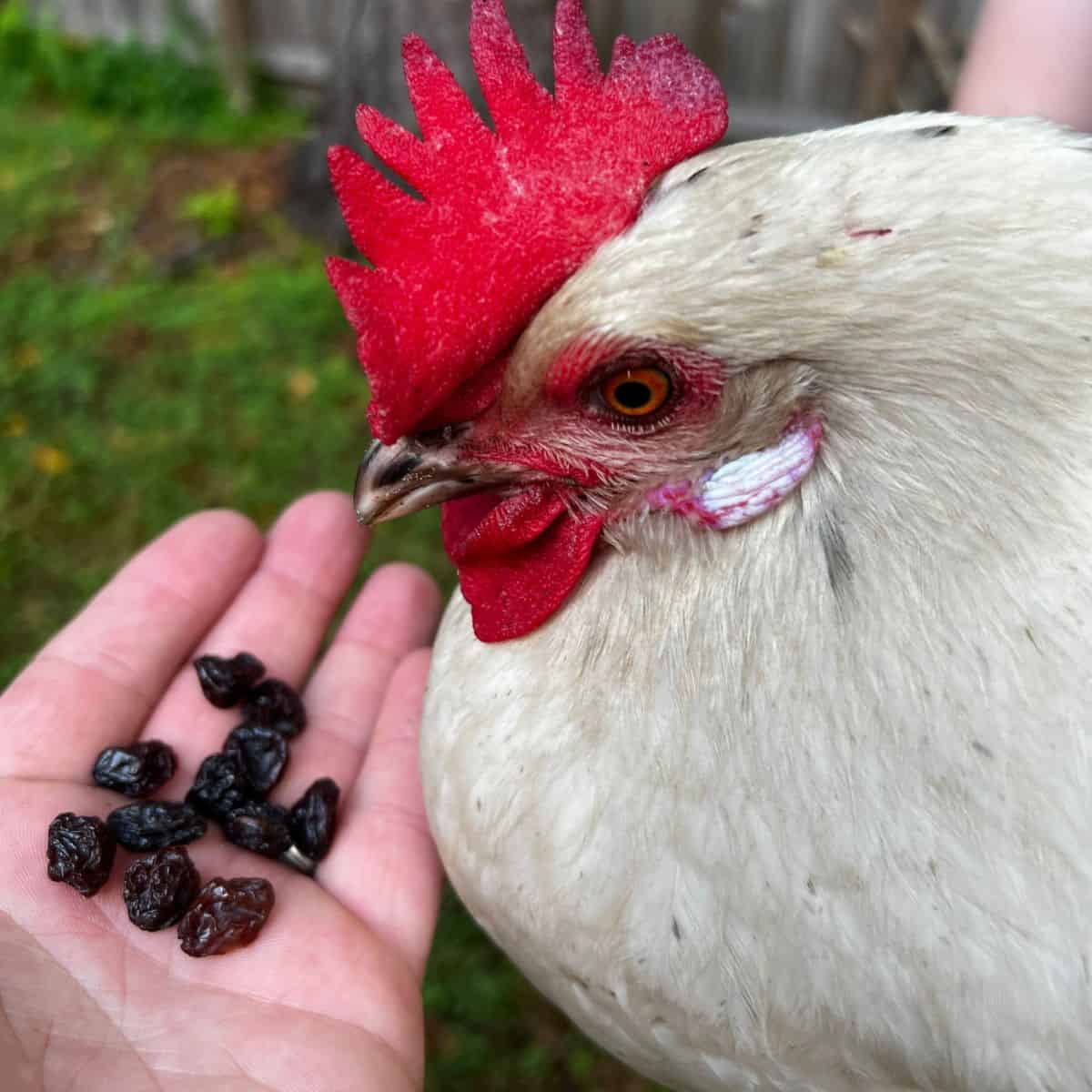
Jump to:
Can Chickens Eat Raisins?
Chickens can eat raisins but they should not eat a lot of them. There are some risks that you should be aware of before you let them snack on your favorite treat. All in all, though, when fed properly, raisins can be a tasty and healthy treat for your chicken flock.
Is it safe for chickens to eat raisins?
So, raisins get a pretty bad rep because they can make a dog go into kidney failure and, in some cases, be fatal. If you ask us, that's a pretty good reason to be weary of raisins. People then just assume if it will kill their dog, it will probably kill any of their other animals.
Fortunately, this is not the case. That's not to say they do not have an element of danger. However, they are not as dangerous for chickens as they are for dogs. The major danger is the amount of sugar in raisins can lead to excessive weight gain, putting stress on their body, a, believe it or not, sugar addiction, which can cause them to stop eating their regular food, and hypoglycemia.
You should be aware of the health issues this can cause so that you can keep your chickens in good health.
Hypoglycemia in chickens
High sugar content is a pretty common risk with just about any berry or fruit you can feed your chickens. It doesn't matter if it's watermelon, cantaloupe, blueberries, or cherries. If they eat too much in a short period of time, your chickens can become hypoglycemic.
All hypoglycemia means is low blood sugar. Or, more accurately, glucose in the bloodstream is low. Glucose is what the body uses as it's primary source of energy. If it gets too low, essential body functions are not able to run as smoothly as they should and can become a problem. This can range from feeling dizzy and lethargic all the way to death.
It's not that scary though. You can avoid it by monitoring what your chickens eat and giving them a high quality chicken feed so they have all of their necessary nutrients and only give them raisins and other sweets as an occasional treat.
Can chickens eat grape leaves?
The answer to this question is an emphatic yes! Chickens can eat grape leaves. Unlike when chickens eat tomatoes and when chickens eat mangos, whose leaves and greenery can be toxic, grape leaves have all of the nutritional benefits of grapes and raisins without the huge sugar dump.
Are raisins healthy for chickens?
Just like with when chickens eat cranberries and when chickens eat figs if fed in moderation, raisins can be a pretty healthy snack; particularly in areas that are deficient in Selenium (which is pretty much the entirety of the US.
What are the nutritional benefits of raisins for chickens?
Other than the amount of sugar, raisins have a lot of good vitamins, antioxidants, and minerals.
The table below, courtesy of the USDA FoodData Center, has a breakdown of the nutritional analysis based on a serving size of 1 cup (145g), loose packed, seeded raisins.
| Name | Amount | Measurement |
|---|---|---|
| Water | 24.1 | g |
| Energy | 429 | kcal |
| Energy | 1800 | kJ |
| Protein | 3.65 | g |
| Total lipid (fat) | 0.783 | g |
| Ash | 2.74 | g |
| Carbohydrate, by difference | 114 | g |
| Fiber, total dietary | 9.86 | g |
| Calcium, Ca | 40.6 | mg |
| Iron, Fe | 3.76 | mg |
| Magnesium, Mg | 43.5 | mg |
| Phosphorus, P | 109 | mg |
| Potassium, K | 1200 | mg |
| Sodium, Na | 40.6 | mg |
| Zinc, Zn | 0.261 | mg |
| Copper, Cu | 0.438 | mg |
| Manganese, Mn | 0.387 | mg |
| Selenium, Se | 0.87 | µg |
| Vitamin C, total ascorbic acid | 7.83 | mg |
| Thiamin | 0.162 | mg |
| Riboflavin | 0.264 | mg |
| Niacin | 1.61 | mg |
| Pantothenic acid | 0.065 | mg |
| Vitamin B-6 | 0.273 | mg |
| Folate, total | 4.35 | µg |
What do these nutrients do?
Here is a handy breakdown of what some of those nutrients listed above do for your chickens' overall health.
- Vitamin A: eye, skin, respiratory, and digestive health
- Antioxidants: (Beta Carotene, Lycopene) repair damage from free radicals, fight off/prevent future damage, protect from oxidative damage, anti-inflammatory, lower blood pressure, improve heart health in high enough doses, development and health of tissue, skin, and feathers
- Vitamin C: joint, cellular, and immune health; collagen synthesis
- Calcium: bones and egg shell strength
- Copper: helps digestion and elevates the immune system
- Vitamin E: immune system support, cell regeneration
- Fiber: only small amounts or they can become constipated, get a blockage, etc; energy, growth, and digestive health, reduce cholesterol, controls blood sugar, digestive health
- Folate (B Vitamin): folate deficiency; helps blood formation; healthy feathers & size
- Iron: prevents anemia
- Vitamin K: blood clotting, bone metabolism
- Magnesium: bone strength and development, cellular metabolism, heart health, muscle function
- Omega 6 Fatty Acids: help with healthy feathers, skin, proper brain development, and assists in growth
- Potassium: temperature control; hydration & electrolyte regulation, metabolism; heart health/heart disease preventative
- Selenium: Boosts their immune system and helps with over nutrient balance in selenium deficient areas (most of the US)
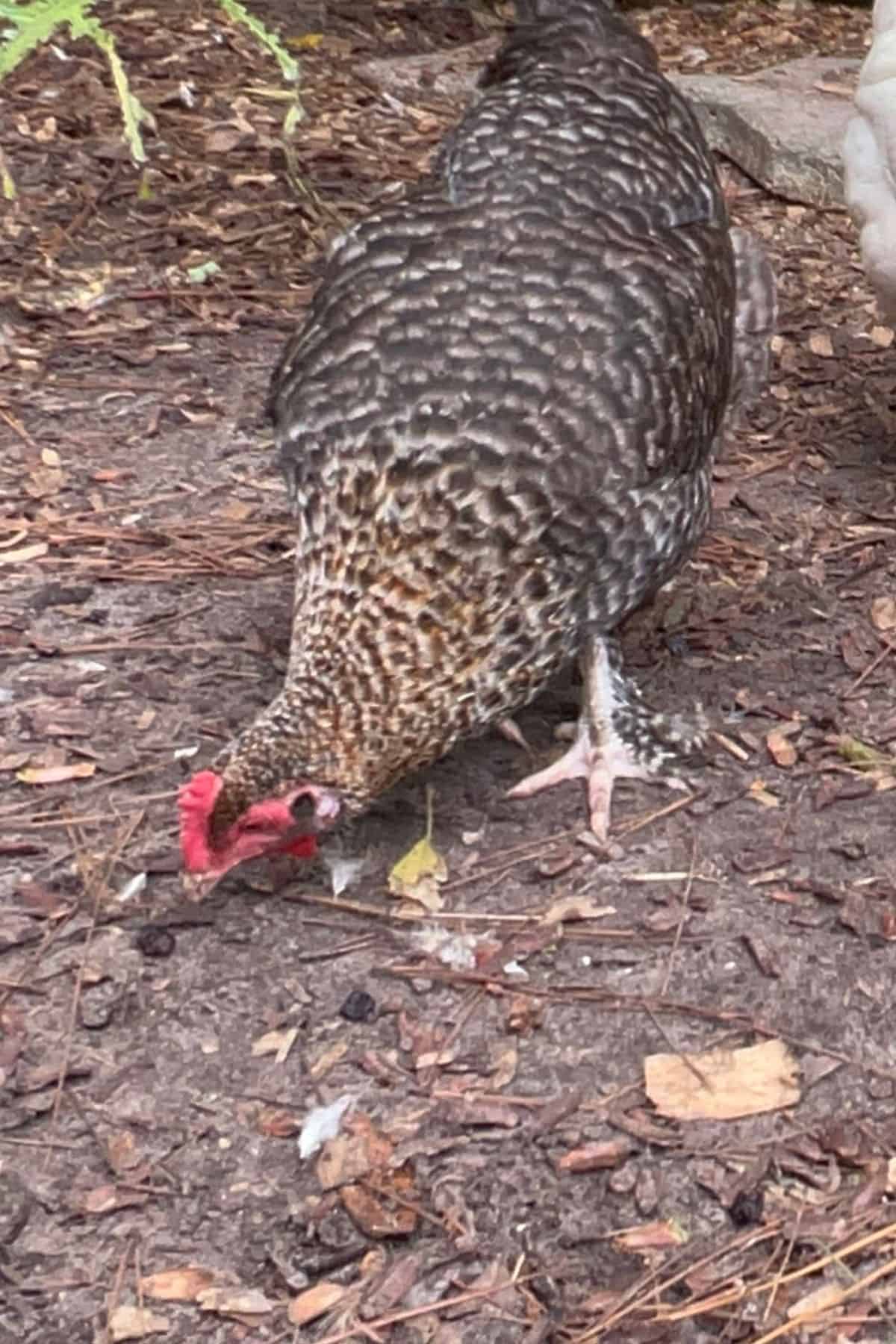
How do you feed raisins to chickens?
Here are a couple of methods you can use to feed raisins to your chickens.
Fresh raisins
Just scatter them around like feed or scratch. This is the easiest method but can be difficult for your chickens to digest. We suggest serving them…
Soaked
Put them in a jar with water and let them soak over night. This softens them so they are easier to chew and digest. This is our preferred method of feeding our chickens raisins, when we do.
Chicken trail mix
Mix with some berries, nuts, meal worms, corn, black oil sunflower seeds, sunflower kernels, and/or flaxseed to make this tasty chicken treat.
Frequently Asked Questions
Q1. Can I overfeed my chicken raisins?
Yes. Feeding your chickens too many raisins can lead to many health problems such as, obesity, sugar addiction, and hypoglycemia.
Q2. How many raisins can I feed my chickens?
Because of the high content and the dangers involved with giving your chicken's too much sugar, you should really only give each chicken 1 to 3 raisins each.
Q3. How often can I feed raisins to my chickens?
We live by the 90/10 rule which says only 10% of a chicken's diet should consist of snacks, treats, and unconventional foods while 90% should be what the catch free ranging and a quality chicken feed.
Q4. Can I feed raisins to my baby chicks?
We don't recommend giving raisins to baby chicks. The can easily choke on them, even if the raisins are pre soaked. It is also very difficult to determine what is a safe amount of sugar due to the chicks' very small size.
Q5. What fruits and vegetables are safe for chickens?
Stick to the 90/10 rule and you should be safe feeding some of these fruits, veggies, and berries.
Fruits
- Apples (not the seeds)
- Bananas
- Cantaloupe
- Cherries
- Currants
- Peaches
- Pears
- Watermelon
Vegetables & Gourdes
- Pumpkin
- Tomatoes
- Yellow Squash
- Zucchini
Berries
- Blackberries
- Blueberries
- Mountain Ash Berries
- Mulberries
- Raspberries
- Rowan Berries
If you need more help with taking care of your chickens, check out The Organized Chicken Keeper for a complete system for managing their health through keeping their supplies stocked and coop clean.

